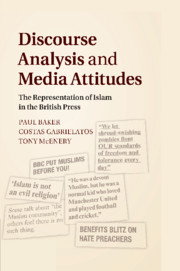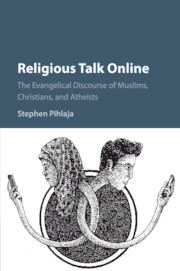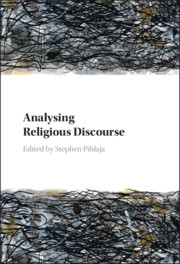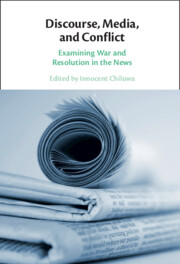The Language of Violent Jihad
- Authors:
- Paul Baker, Lancaster University
- Rachelle Vessey, Carleton University, Ottawa
- Tony McEnery, Lancaster University
- Date Published: January 2024
- availability: Not yet published - available from October 2024
- format: Paperback
- isbn: 9781108431378
Paperback
Other available formats:
Hardback, eBook
Looking for an inspection copy?
This title is not currently available for inspection. However, if you are interested in the title for your course we can consider offering an inspection copy. To register your interest please contact [email protected] providing details of the course you are teaching.
-
How do violent jihadists use language to try to persuade people to carry out violent acts? This book analyses over two million words of texts produced by violent jihadists to identify and examine the linguistic strategies employed. Taking a mixed methods approach, the authors combine quantitative methods from corpus linguistics, which allows the identification of frequent words and phrases, alongside close reading of texts via discourse analysis. The analysis compares language use across three sets of texts: those which advocate violence, those which take a hostile but non-violent standpoint, and those which take a moderate perspective, identifying the different uses of language associated with different stages of radicalization. The book also discusses how strategies including use of Arabic, romanisation, formal English, quotation, metaphor, dehumanisation and collectivisation are used to create in- and out-groups and justify violence.
Read more- The only book which uses corpus linguistics to examine a wide range of texts written by violent jihadists, allowing us to identify the most important linguistic patterns in the texts
- Carries out a comparison of texts categorized as Moderate, Fringe and Extreme, to show different uses of language associated with different stages of radicalization
- Uses both quantitative and qualitative techniques, combining statistical tests and frequency tables with detailed linguistic examination of texts
Customer reviews
Not yet reviewed
Be the first to review
Review was not posted due to profanity
×Product details
- Date Published: January 2024
- format: Paperback
- isbn: 9781108431378
- length: 244 pages
- dimensions: 228 x 152 x 13 mm
- weight: 0.37kg
- contains: 40 b/w illus. 52 tables
- availability: Not yet published - available from October 2024
Table of Contents
1. Introduction
2. Terrorism and Language
3. Collecting and Analysing Extremist Texts
4. The In-Group
5. The Out-group
6. The Path of Jihad
7. Linguistic Strategies
8. Conclusion.
Sorry, this resource is locked
Please register or sign in to request access. If you are having problems accessing these resources please email [email protected]
Register Sign in» Proceed
You are now leaving the Cambridge University Press website. Your eBook purchase and download will be completed by our partner www.ebooks.com. Please see the permission section of the www.ebooks.com catalogue page for details of the print & copy limits on our eBooks.
Continue ×Are you sure you want to delete your account?
This cannot be undone.
Thank you for your feedback which will help us improve our service.
If you requested a response, we will make sure to get back to you shortly.
×






